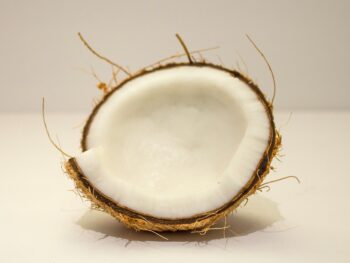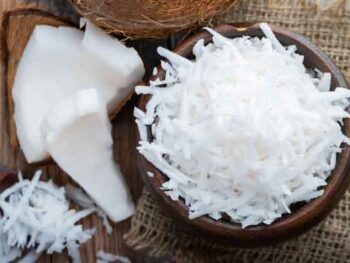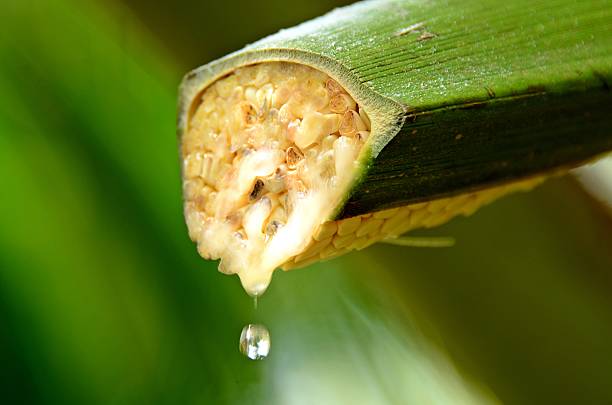
In the global shift toward healthier, more sustainable sweeteners, coconut nectar organic has emerged as a popular alternative to refined sugar. Tapped from the sap of coconut blossoms, this golden liquid boasts a low glycemic index, rich mineral content, and a unique caramel-like flavor. But beyond its culinary appeal, coconut nectar holds a deeper value—it’s a source of livelihood for thousands of smallholder farmers across Southeast Asia and the Pacific Islands.
Unfortunately, not all coconut nectar is produced ethically. Exploitative middlemen, low pay, and unsafe working conditions are persistent challenges in many agricultural supply chains. However, several forward-thinking brands are rewriting the narrative by prioritizing ethical sourcing, fair wages, community development, and environmental sustainability.
This article profiles leading ethical coconut nectar brands that are making a real difference by supporting farmers and their families while bringing consumers a truly transparent and responsible product.
1. Aliet Green – Indonesia
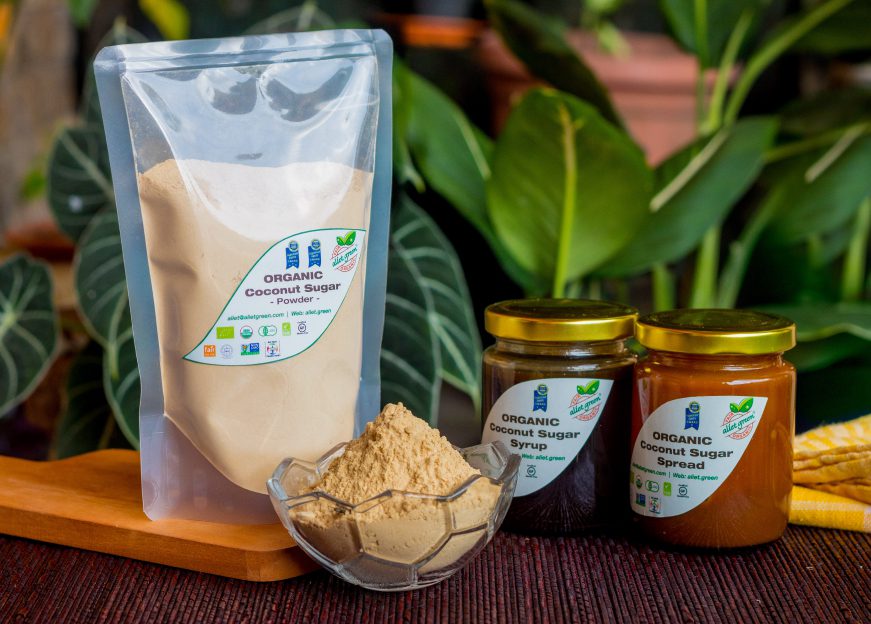
Location: Yogyakarta, Java, Indonesia
Founded by: Lastiana Yuliandari
Aliet Green is a female-led social enterprise that's become a beacon for ethical coconut nectar and coconut sugar production. Founded in 2009, the brand collaborates with over 1,500 smallholder farmers, 90% of whom are women. Their mission goes beyond profits—they focus on social equity, sustainability, and rural empowerment.
What Makes Them Ethical:
- Fair for Life (Fair Trade) certified
- Offers above-market prices for sap, and ensures prompt payment
- Provides free training in organic farming, waste management, and agroecology
- Profits help fund education, sanitation, and women-led businesses
Aliet Green proves that ethical sourcing and high-quality products can go hand-in-hand. Their coconut nectar is USDA and EU Organic certified and exported globally, all while creating meaningful change at the community level.
2. Big Tree Farms – Indonesia
Location: Bali & Central Java, Indonesia
Founded by: Ben Ripple and Frederick Schilling
Big Tree Farms has long been a pioneer in the ethical food movement in Southeast Asia. They were one of the first companies to commercialize coconut nectar and sugar on a global scale—while placing fair trade at the heart of their supply chain.
Working with over 6,000 farmers, Big Tree Farms emphasizes direct trade, cutting out the middlemen that often take the largest share of farmer earnings.
What Makes Them Ethical:
- Certified Organic and Fair Trade
- Transparent, vertically integrated supply chain
- Offers training, healthcare, and education programs to farming communities
- Operates from a solar-powered bamboo facility (one of the greenest in Asia)
Their coconut nectar is known for its flavor and quality, but it’s the company’s focus on long-term farmer partnerships that truly stands out.
3. Tradin Organic – Netherlands/Indonesia
Location of Farms: Central Java, Indonesia
Parent Company: Tradin Organic Agriculture B.V.
Tradin Organic is a global organic ingredient supplier with a strong local presence in Indonesia, where they source organic coconut nectar and sugar from thousands of smallholder farmers.
What Makes Them Ethical:
- Established farmer cooperatives in Central Java
- Implements sustainability programs around agroforestry and soil health
- Offers premium pricing, training, and access to organic certification
- Invests in local schools, water systems, and roads
Rather than functioning as a traditional importer, Tradin builds long-term relationships with farming communities and plays an active role in improving livelihoods.
4. Sari Manggar – Indonesia
Location: Sukoharjo, Central Java, Indonesia
Sari Manggar Indonesia is a fully integrated company, meaning they manage the entire coconut nectar production process—from tree tapping to bottling. This integration allows them to ensure transparency, quality control, and fair farmer compensation every step of the way.
What Makes Them Ethical:
- Direct sourcing from over 500 trained farmers
- Helps farmers transition to organic farming practices
- Offers above-market rates and shares in profits
- Focuses on female inclusion and household income diversification
Their commitment to social responsibility is evident in every bottle, making them a standout in Indonesia’s coconut nectar space.
5. Copra Coconuts – Philippines
Location: Davao, Philippines
Copra Coconuts is a Philippine-based brand focused on producing pure, single-origin coconut nectar and aminos. They operate through smallholder cooperatives and have built a supply chain based on trust, transparency, and traceability.
What Makes Them Ethical:
- Works directly with local farmer cooperatives
- Offers training in sustainable farming, pest control, and fermentation
- Pays livable wages and helps farmers manage price volatility
- Actively involved in community health and nutrition programs
In a country where coconut farming is often undervalued, Copra Coconuts is helping shift the power back to the producers.
6. Bob’s Red Mill – USA (Partnered with Fair Trade Producers)
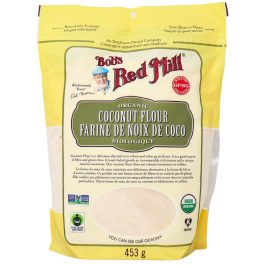
Location: USA (Sourcing from Philippines and Sri Lanka)
Though not a producer themselves, Bob’s Red Mill partners with Fair Trade Certified™ coconut ingredient suppliers to ensure farmers receive fair compensation. Their commitment to ethical sourcing includes coconut nectar-based products such as coconut sugar, flour, and baking mixes.
What Makes Them Ethical:
- Partners with Fair Trade USA
- Supports programs that improve education, water access, and income
- Pays a social premium to suppliers to reinvest in farming communities
- Maintains a transparent, high-integrity supply chain
As a large global brand, Bob’s Red Mill’s commitment to ethical trade and traceability helps set industry standards.
7. Coco Sugar (PT Coco Sugar Indonesia)
Location: Banyumas, Central Java, Indonesia
Coco Sugar is another leading producer of organic coconut nectar and sugar, exporting to over 40 countries worldwide. The company collaborates with over 1,000 organic-certified farmers.
What Makes Them Ethical:
- Fair trade practices with transparent pricing
- Offers training in sustainable tapping and sap fermentation
- Prioritizes regenerative agriculture and biodiversity
- Supports local education initiatives and farmer health programs
With a mission rooted in “people, planet, and purpose,” Coco Sugar ensures their growth also uplifts the communities behind their products.
Why Coconut Nectar Organic Ethical Sourcing Matters

The benefits of supporting ethical coconut nectar brands go beyond taste and health:
- Economic empowerment for rural farming communities
- Gender equity, especially for women farmers
- Environmental sustainability through organic, regenerative agriculture
- Transparency and traceability, ensuring no exploitation in the supply chain
As consumers, our choices directly impact how food is grown and who benefits from it. By purchasing from ethical coconut nectar brands, you're not just sweetening your food—you're investing in a fairer, more sustainable future.
Conclusion
Coconut nectar isn’t just a sweetener; it's a story of community, resilience, and responsibility. Brands like Aliet Green, Big Tree Farms, Tradin Organic, Sari Manggar, and others are setting new standards in the industry by ensuring farmers are fairly paid, trained, and empowered.
In a world where transparency and ethical sourcing are increasingly important, these companies prove that it's possible to run a successful business that respects people and the planet.
So the next time you reach for coconut nectar, look for the labels that tell a deeper story—one of justice, sustainability, and sweetness in more ways than one.


